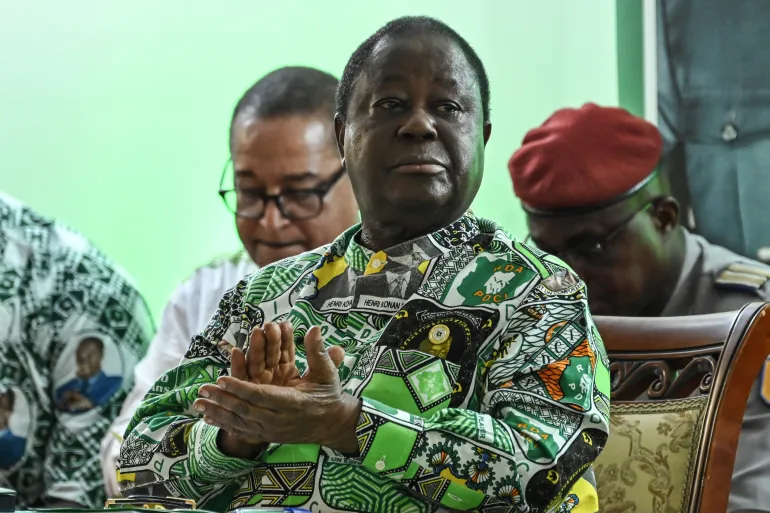Former President Henri Konan Bedie of Ivory Coast has passed away at the age of 89, his party, the Ivory Coast Democratic Party-African Democratic Rally (PDCI-RDA), has announced. Bedie, a nationalist leader who had not ruled out a return to power, died suddenly in a hospital in the capital city of Abidjan on Tuesday.
Bedie, born in 1934 to a family of cocoa planters, was the chosen successor of Ivory Coast’s founding father, Felix Houphouet-Boigny. He served as president from 1993 to 1999 until he was overthrown in the country’s first-ever coup. Despite facing several unsuccessful attempts to regain the presidency, Bedie remained a prominent figure in Ivorian politics.
Dubbed the “Sphinx of Daoukro” after his hometown, Bedie was known for his political astuteness and ability to navigate challenging circumstances. He had attempted to run for president in 2000, 2010, and most recently in 2020, where he secured only 1.7 percent of the vote, coming in third place. However, Bedie remained undeterred and had not ruled out the possibility of running in the next presidential election scheduled for 2025.
Throughout his political career, Bedie’s main influence on national politics was the promotion of “Ivoirite” or Ivorian identity. This nationalist policy advocated for a sense of national unity and an emphasis on the national economy in a country with numerous ethnic groups. While this idea aimed to nurture a sense of shared Ivorian identity, it also resulted in discrimination against immigrants, particularly those working in the country’s vital cocoa plantations.
Bedie’s rivalry with current President Alassane Ouattara spanned three decades and was rooted in their differing ideologies and visions for the country. The promotion of “Ivoirite,” which sought to exclude Ouattara from running for president due to his alleged foreign heritage, contributed to political turmoil and an armed conflict that emerged in 2000 and lasted until 2011.
Despite their differences, Bedie eventually supported Ouattara during the post-election crisis in 2010 and became an ally during the first six years of Ouattara’s presidency. However, tensions resurfaced between the two leaders, causing a rift in their relationship.
Bedie’s leadership skills were evident within his party as well. Despite being an octogenarian, he was able to fend off younger competitors within the PDCI and maintain a stronghold. His political prowess and tactical approach convinced the younger members of his party to support him once again.
Bedie’s passing marks the end of an era in Ivorian politics. His nationalist policies and remarkable political survival skills have left a lasting impact on the country. With his death, the nation mourns the loss of a key figure in its history and prepares for the future without one of its most influential leaders. As Ivory Coast moves forward, the question of who will succeed Bedie as the leader of the PDCI and continue his legacy remains unanswered.
Image Credit: Sia Kambou/AFP





